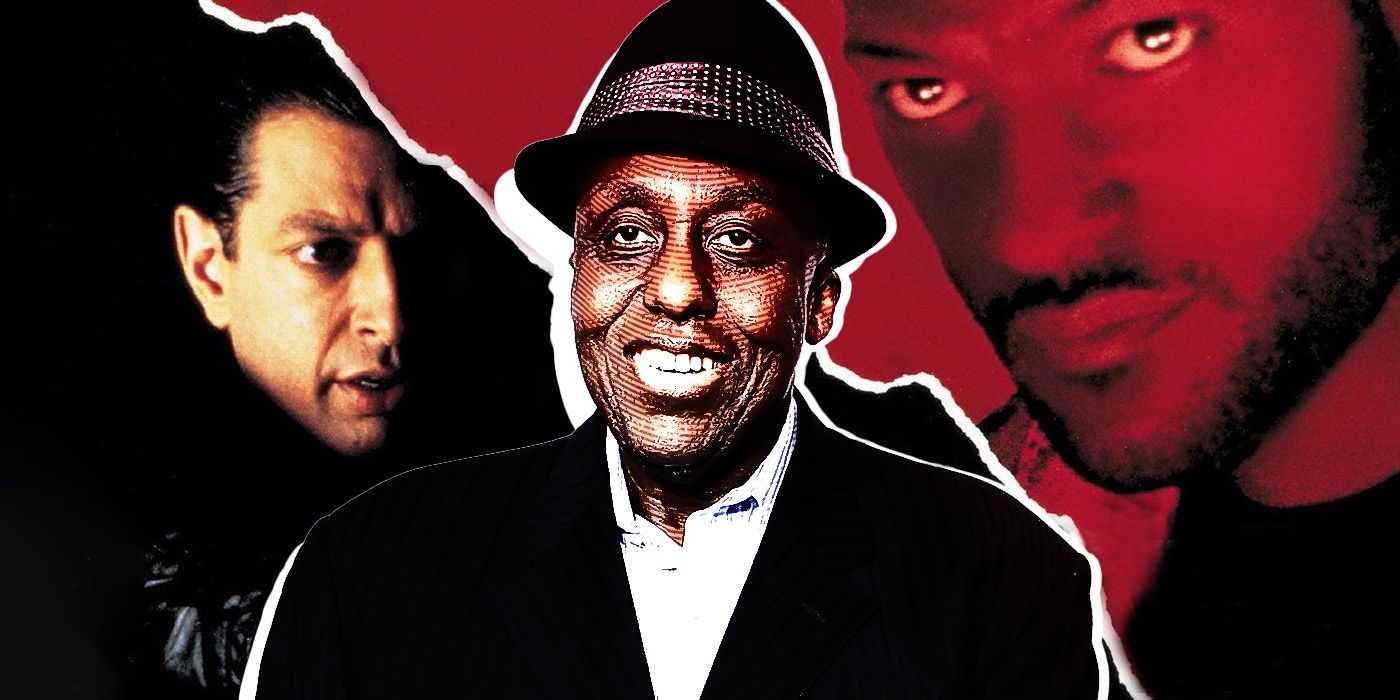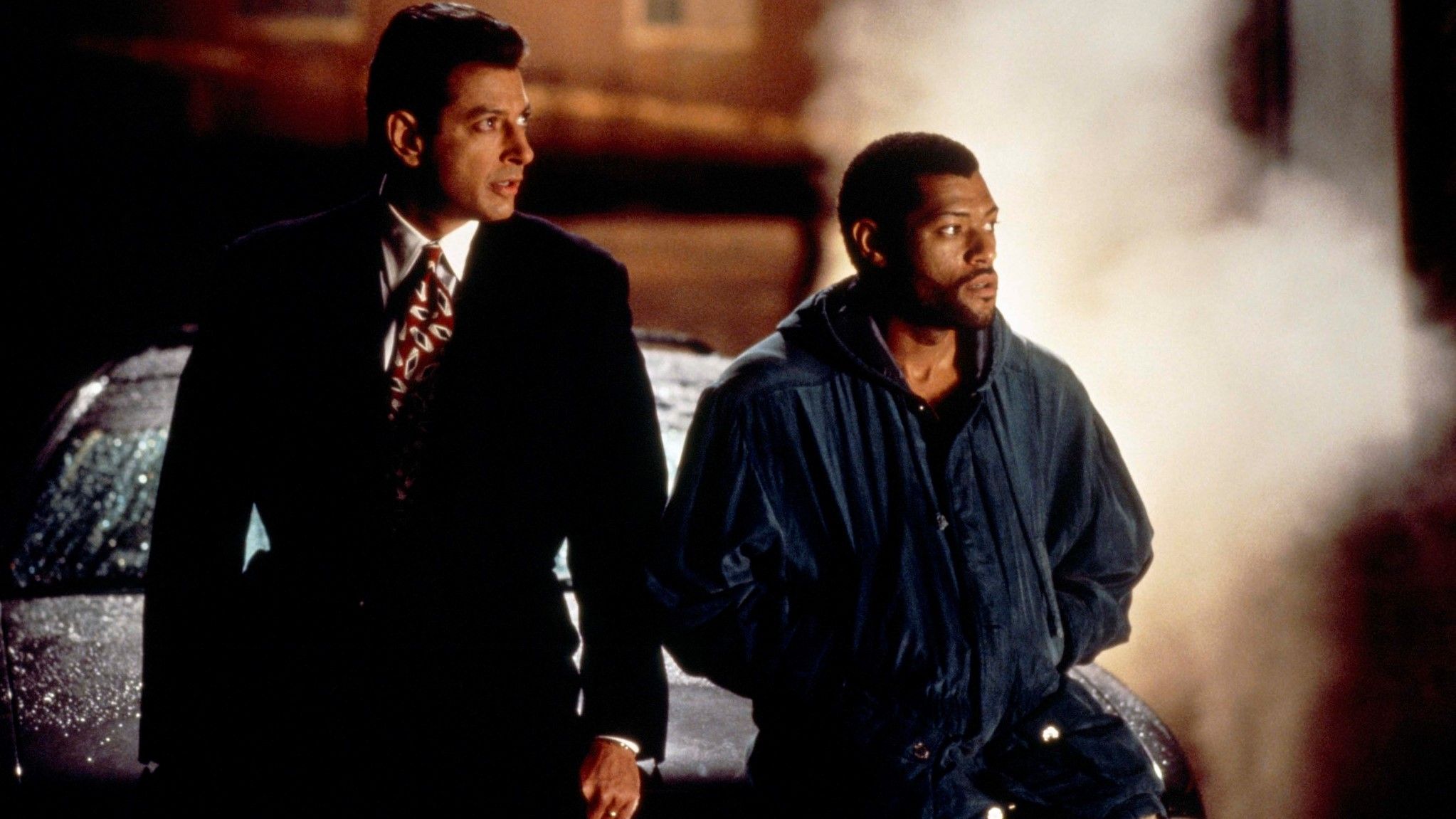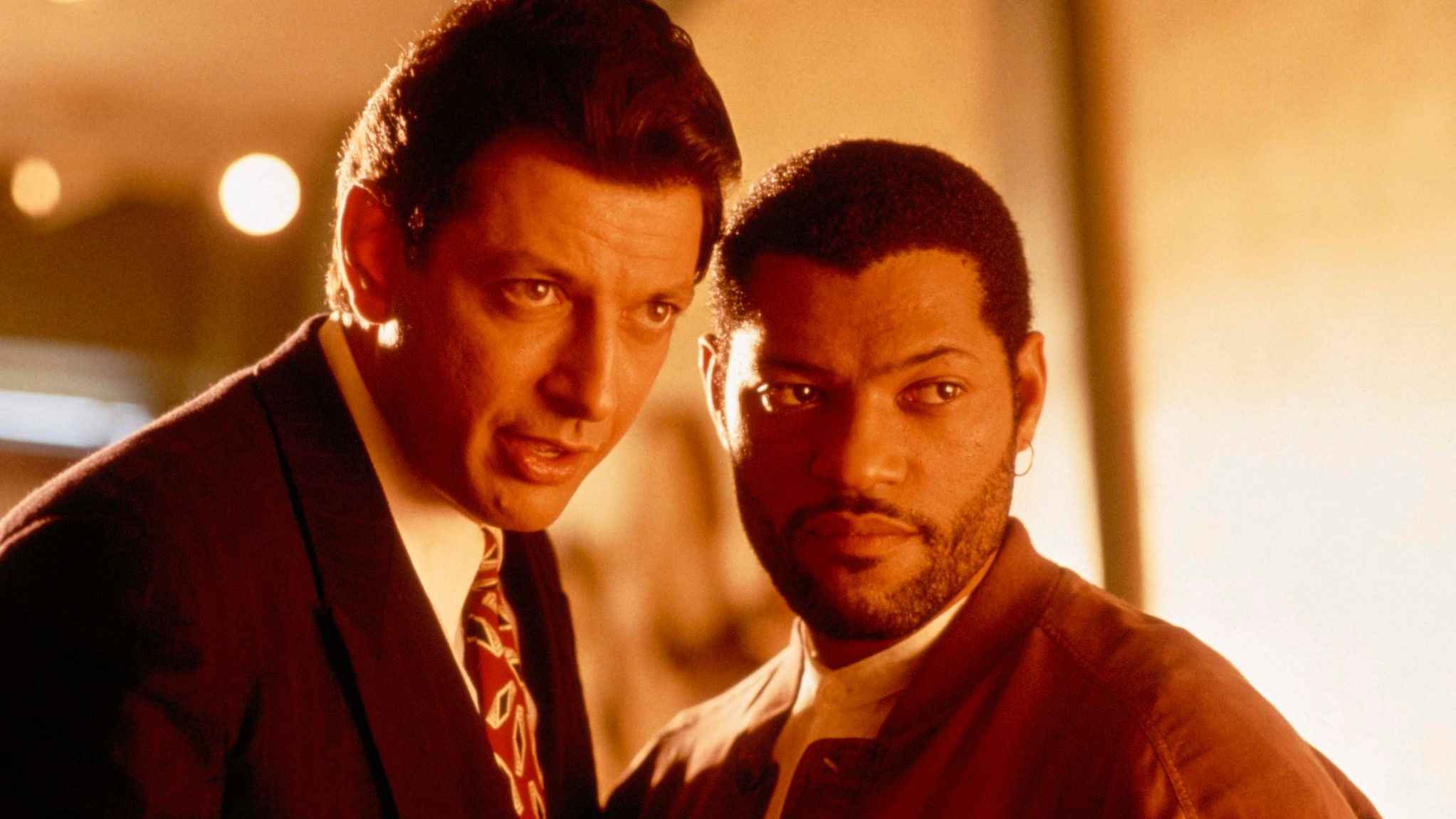Following the recent Criterion Collection re-release, Bill Duke’s neo-noir masterpiece Deep Cover has received a long overdue reappraisal as one of the most elegant and engaging crime thrillers of the 1990s. Many films of the 1990s, including Boyz in the Hood and Menace II Society, paved the way for increased visibility and versatility for Black filmmakers in the decades to come. But few other films matched Deep Cover’s tight narrative structure, which boldly balances thrilling entertainment and sociocultural intrigue.
Anchored by a brilliantly nuanced lead performance from Laurence Fishburne as undercover police officer Russell Stevens, Deep Cover co-opts the conventions of blaxploitation cinema to subvert the pervasive stereotypes and formulaic storytelling often attributed to the genre, elevating a Black protagonist’s dismantling of the suppressive systems of American policing from within. Through the complex conflict between the central duo of Fishburne’s undercover cop and Jeff Goldblum’s drug lord attorney David Jason, as well as the poetic use of voiceover that reveals Fishburne’s protagonist’s inner conflict, Deep Cover reframes the blaxploitation thriller as an exercise in noir-style storytelling and a revisionist confrontation of systemic oppression.
Although many of the blaxploitation films of the 1990s including Original Gangstas and Jackie Brown called on the genre’s most iconic stars like Pam Grier and Fred Williamson to inhabit the revisionist narratives, Deep Cover foregrounds new Black talent like Victoria Dillard and especially Fishburne to highlight a forthcoming era of Black representation in cinematic storytelling. In order to demonstrate the shift from traditional blaxploitation storytelling, the film opens with a tragic sequence of a young Russell Stevens witnessing his father’s death during a botched robbery. While the death of young Russell’s father serves as the impetus for the protagonist to abandon a familial lineage of crime for a place in the local police force, the opening sequence also serves as a subtle gesture towards the Golden Age of Blaxploitation in the 1970s, as iconic blaxploitation star Glynn Turman (Cooley High, J.D.’s Revenge) portrays Russell’s father. By symbolically challenging the stereotypical underpinnings of earlier films in the genre through the tragic death of the protagonist’s father, Deep Cover begins its nuanced engagement with the history and future of the blaxploitation crime thriller.
Once Fishburne’s Russell begins his undercover work to dismantle one of the biggest cocaine operations in L.A., the film invites the audience into the interior experience of Russell’s reasoning with his complicated experience with criminality. Rather than merely rendering Russell as a muscular mystery man like many blaxploitation protagonists of the past, both Duke’s direction and Fishburne’s performance pivot Russell into the realm of the noir hero, using the moral murkiness of undercover work as a challenge to the protagonist’s moral compass and navigation of generational grief. As the line begins to blur between the real Russell Stevens and the fictional “John Hull,” Fishburne imbues his performance with an ethical ambiguity on-screen and via voiceover, similar to William Holden’s reflexive work in Sunset Boulevard and even Robert De Niro’s haunting performance in Taxi Driver. Even compared to these two legendary noir and neo-noir touchstones, Fishburne’s voiceover adds a layer of relatable absurdism to Deep Cover’s gritty narrative texture, aligning the audience emotionally within his complicated performance-within-a-performance.
Expanding beyond the formal focus on Russell’s contemplation through voiceover, the systemic conflict and complicated camaraderie of Russell Stevens and Goldblum’s David Jason offers an exhilarating multi-layered mystery plot and a further destabilization of traditional blaxploitation storytelling. By initially introducing Jason as an attorney and a family man caught in a large drug-dealing operation, the film tricks the audience into a semblance of sympathy for the figure; however, upon revealing Jason as one of the higher-ranking smugglers in the cartel, Goldblum’s charming performance slowly transforms into an actor’s masterclass in emotional deception. As the tensions between Russell and Jason crescendo towards the film’s climactic encounter with the importer and politician supplying the men with their illegal product, the subtle confidence and swelling rage billowing beneath both Fishburne and Goldblum’s performances comes to a head in a match of wits with the antagonists, in addition to the final battle of brawn, reaffirming Deep Cover’s place as an introspective thriller.
Perhaps the most meaningful aspect of Deep Cover’s narrative structure is the way that Fishburne’s protagonist navigates power dynamics. While many of the studio blaxploitation films of the 1970s rendered their heroes as either cogs attempting to escape a capitalistic system or exploited individuals forced to overcome the systemic racism of the political and policing establishments, Deep Cover offers Russell Stevens almost complete agency over his engagement with police work and the criminal underground.
From his confidence in the cocaine-related court case early in the film to his eventual double-cross and secret stash of cash that concludes the film, Russell simultaneously prioritizes his personal well-being beyond the police force and maneuvers the difficulties of maintaining his false identity in the face of multiple powerful and potentially violent individuals. By remaining skeptical of the police force that employs him in the midst of his undercover work, Russell confidently retains his personal agency outside the systemic corruption that he sees in L.A. policing, particularly embodied by compromising undercover cops and radically religious agents.
Even as Deep Cover retains the coolness factor and sharp sociocultural critiques that characterize the best in blaxploitation cinema, the centralization of a complex character who thwarts political corruption from within a broken system and upends stereotypes regarding racialized depictions of criminality allows the film to transcend the trappings of traditional crime thrillers. Laurence Fishburne’s bold embodiment of Russell Stevens as an uncompromising yet emotionally complex figure caught between two worlds solidifies the film as one of the late 20th century's best genre exercises and character studies.
While films like King of New York and Boyz n the Hood helped establish Laurence Fishburne as a dynamic star with an assertive, and often aggressive, screen presence, Deep Cover bravely challenges the previous notions of Fishburne’s stardom to illustrate the breadth of his talents and establish him as one of his generation’s greatest screen actors.




